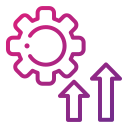Overcoming Distractions in Remote Work Settings
Theme selected: Overcoming Distractions in Remote Work Settings. Reclaim clarity, protect your best hours, and build a home-work rhythm that supports deep focus without sacrificing life’s warmth. Stay with us, share your wins, and subscribe for practical, friendly guidance.
Understand How Distractions Hijack Remote Work
When you switch from budgeting to dishes to chat notifications, a residue of the previous task lingers. Research suggests it can take over twenty minutes to fully recover, especially in home settings packed with micro-triggers.
Multitasking feels productive but fractures working memory. In remote environments, where context cues are weaker, this illusion grows stronger. One tab for work, one for news, and suddenly your brain is juggling dropped balls.
A glance at your phone, a quick reply, a tiny kitchen break—each seems harmless. Multiply them by a day, then a week, and you have hours of invisible drift that quietly erode meaningful progress.
Create distinct zones: deep work, admin, and recovery. Keep only relevant tools in each zone. When your hands enter a zone, your mind knows the script, reducing hesitation and the urge to wander.

Timeguard Rituals: Protect Deep Work on Your Calendar
Focus Sprints with Buffers
Run eighty-minute sprints followed by ten-minute buffers for stretch, water, and notes. The buffer absorbs small tasks, so your next sprint starts clean. Over time, momentum replaces willpower as your primary driver.
Calendar Fencing
Block your mornings for deep work and set meetings after noon whenever possible. Use explicit event titles like “No Meetings—Writing.” People respect clarity, and you model healthy, focused collaboration for teammates.
Startup and Shutdown Routines
Begin with a five-minute plan and end with a five-minute review. Park tasks in tomorrow’s first slot. This bookend habit calms nighttime rumination and reduces morning thrash caused by uncertain priorities.
Digital Hygiene: Tame Notifications and Tools
Set only three categories to notify: emergencies, calendar changes within the next hour, and direct messages from a tiny VIP list. Everything else becomes digestible batches you check intentionally, not reflexively.
People, Pets, and Doorbells: Human-Centered Strategies
Agreements That Stick
Co-create a household schedule, including quiet blocks, shared breaks, and backup plans for surprises. Agreements work best when everyone helps design them and benefits from consistent, fair expectations.


Friendly Cues and Reminders
Use a weekly whiteboard and a simple three-color system for availability. Kids understand green, yellow, red instantly. Add one daily shared ritual—like a snack break—to replace random interruptions with something dependable.
Circadian-Friendly Routine
Anchor your day with morning light, a consistent wake time, and a caffeine cutoff in the early afternoon. Predictable rhythms sharpen mental clarity and shrink the energy dips that invite easy distractions.
Movement Snacks as Resets
Every ninety minutes, take a two-minute movement break—walk stairs, stretch hips, or do ten squats. Small bursts refresh blood flow, mood, and posture, helping you re-enter focus faster with fewer aches.
Fuel for Attention
Pair protein and fiber for steady energy, add water at your desk, and keep fruit visible. When your brain isn’t hunting sugar spikes, it stops bargaining for distracting, short-term rewards.

Weekly Focus Audit
List your top three distractions, estimate minutes lost, and design one experiment to test next week. Track results in a simple note. Improvement begins when you measure gently and respond creatively.

Tiny Experiments, Big Payoffs
Diego swapped his phone alarm for a sunrise clock and left his phone outside the bedroom. He regained ninety quiet minutes weekly, enough to finish a certification course without late-night stress.
Join our mailing list
